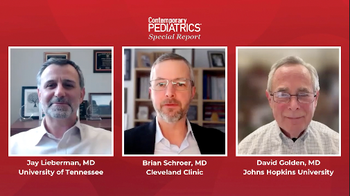Article highlights
- The study showed that SMS reminders significantly improved influenza vaccination rates among children with special risk medical conditions when compared to clinician nudges alone.
- The intervention led to higher vaccine receipt during the optimal influenza vaccination period, highlighting the importance of timely reminders in encouraging vaccination.
- The study used an educational SMS approach to inform parents about the seriousness of influenza for medically at-risk children, encouraging them to consider vaccination.
- Conducted in a tertiary care hospital setting, the study demonstrated the effectiveness of SMS nudges, suggesting their potential in similar healthcare environments.
- Combining clinician recommendations with parental SMS nudges proved to be a successful strategy, ensuring improved adherence to vaccination guidelines.
A higher influenza vaccination uptake was observed among children with special risk medical conditions (SRMCs) when their parents received an additional short message service (SMS) reminders, or “nudge,” in a tertiary care hospital setting, compared to clinician nudges alone.
Those with chronic medical conditions are put at an increased risk of severe influenza, making this group of individuals a priority for influenza immunization. Investigators sought to evaluate the effectiveness of Flutext-4U, a parent SMS reminder nudge intervention, in a parallel-group, randomized clinical trial (RCT) conducted at a tertiary pediatric hospital in Adelaide, South Australia. The study took place from April 15 to September 20, 2021, and included a total of 600 participants. Eligible participants were aged between 6 months and 18 years with SRMCs “and a subspecialist outpatient appointment over a 5-month period during the Australian seasonal influenza vaccination season (April-August 2021).”
Individuals were randomly assigned at 1:1 ratio to the control group (302 [50.3%]), which were clinician nudges consisting of hospital vaccine availability, ease of access, and recommendations from hospital subspecialists. The remaining study participants were assigned to the intervention group (298 [49.7%]), which featured the control group conditions plus an added SMS reminder nudge for vaccination to parents. Randomization was stratified by age group (<5 years, 5-14 years, or >14 to <18 years).
Influenza vaccine signage was placed around the hospital while vaccine availability and ease of access was ensured in the control group. Influenza vaccine reminder stickers on the front of case notes and bookmarks at relevant clinical notes pages served as clinical-level nudges, assisting hospital specialists to make a vaccine recommendation during an appointment with parents of all children in the trial.
The parent-level nudge, in addition to the clinician nudges, were SMS reminders sent to the child’s parent. The nondirective, educational approach advised parents that their child was eligible for a funded influenza vaccine. Each parent received a maximum of 3 SMS reminders for their child, which were timed to be sent before and after the scheduled specialist appointments.
According to the study, the SMS read, “Influenza may be serious for children with specific medical conditions. The Women’s and Children’s Hospital recommends the influenza vaccine for all medically at-risk children. *NAME* is recommended to receive the influenza vaccine. The vaccine is free and available at GP clinics or at the WCH. Ask at your upcoming WCH appt. If your child has already received the 2021 Flu vaccine, please reply “1.” Reply “STOP” to opt out.”
The primary endpoint of the study was the receipt of at least 1 dose of influenza vaccine by the end of the study period (September 30, 2023), confirmed by the Australian Immunization Register. Secondary endpoints included receipt of at least 1 influenza vaccine dose during the optimal April 1 to June 30 period for those randomly assigned on or before June 15, and days between random assignment and receipt of vaccination.
For the SMS intervention group, influenza vaccination was 38.6% (113 of 293) compared to the control group which was 26.2% (79 of 302) (adjusted odds ratio [aOR], 1.79; 95% CI, 1.27-2.55 [P = .001]). Time to receipt of vaccine was significantly lower in the SMS intervention group compared to control (adjusted hazard ratio 1.67; 95% CI, 1.25-2.22 [P < .001]).
There were 387 participants randomly assigned before June 15, 2021. Among these participants, the probability of vaccination in the optimal April 1 to June 30, 2021 period was higher in the SMS intervention group compared to the control group “(SMS group: 40.0% [76 of 190] vs 25.4% [50 of 197]; aOR, 1.97; 95% CI, 1.28-3.06; P = .002).”
Results from the RCT suggest that SMS nudge reminders for parents of children with SRMCs was superior to clinician nudges alone, in a tertiary care setting, leading to higher vaccine receipt in the optimal seasonal influenza period.
Reference:
Tuckerman J, Harper K, Sullivan TR, et al. Short message service reminder nudge for parents and influenza vaccination uptake in children and adolescents with special risk medical conditions: the Flutext-4U randomized clinical trial. JAMA Pediatr. 2023;177(4):337–344. doi:10.1001/jamapediatrics.2022.6145.




